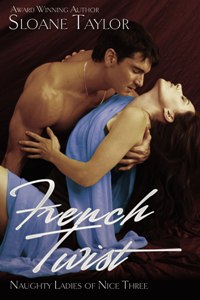
Romance authors have covers that clearly establish the nature of their prose. For the rest of us it’s not quite so easy.
I have a new novel coming out in March. The moment I mention the impending arrival of my “baby,” prospective readers ask, “What’s the genre?”
“Well, um…it’s hard to say,” I respond, staring at my shoes, wondering why such a simple question has no equally simple answer.
I have a tendency to write stories without giving thought to where they might fit in literary culture. So far, my titles have been variously listed as soft-thriller/contemporary fiction/mystery, historical fiction/mystery/women’s fiction, and young adult fiction/contemporary fiction. There are also romantic elements sprinkled in all three books, so you can see why labeling my work tends to make my head spin.
Still, identifying a genre for your novel is important.
“We use genre as a way to identify the category of a book. Where it should be sold in a store. Or who its competition will be,” long-time literary agent Steve Laub wrote in his blog article Does Genre Matter? “The best way to describe it is to say that publishers and booksellers sell books out of boxes. The boxes are labeled “Romance” “Thriller” “Mystery” etc. Before we resist that exercise I would claim that we consumers buy books out of those boxes. It is quite possible that the boxes were created by us (the consumers).”
Early novelists had no problem with genre
There is some dispute about which English book should be called the first novel. Some believe Miguel de Cervantes’ Don Quixote of La Mancha, published in 1605, deserves the honor. Others opine that Daniel Defoe’s 1719 Robinson Crusoe should get the nod. Either way, neither author had to think too hard about genre.
“In 1719, when Robinson Crusoe appeared, many people considered “the novel,” in itself, to be a genre,” said Joshua Rothman in his The New Yorker article titled A Better Way to Think About The Genre Debate. “The novel was a new thing—a long, fictitious, drama-filled work of prose—and its competitors were other prose genres: histories, biographies, political tracts, sermons, testimonies about travel to far-off lands. What set the novel apart from those other prose genres was its ostentatious fictitiousness.”
Clearly, modern-day authors can find labeling their work infinitely more complicated than those early novelists. Look at today’s overwhelming number of possible fiction genres. The Book Industry Study Group’s list of fiction topics – http://ftp.bisg.org/what-we-do-0-100-bisac-subject-headings-list-fiction.php – includes approximately 140 genres, all of which can be combined in what seems like a never-ending number of possibilities.
I’ll admit, sometimes I’m jealous of my Romance-writer friends, their covers bursting with muscled torsos and over-flowing bodices that leave not a hint of confusion about what type of story resides inside. Still, as difficult as pinning down that perfect genre might be, there’s no way around it, especially if you want to contact agents, or publishers, or editors, or reviewers, because those folks are pretty specific about the types of book they’re interested in. If you want to be considered an amateur in the publishing world, go ahead and send a query about your sci-fi, apocalyptic, young adult romance to someone who has made clear their genre of choice is 19th century English crime fiction. (And you were wondering why you hadn’t heard back.)
Ultimately, authors need to decide
While some authors may be tempted to leave the genre decision to others, remember, you wrote the book. You know the story and the characters better than anyone. Ultimately, you should choose. An article on the blog Rock Your Writing called How To Figure Out Your Book’s Genre – http://www.rockyourwriting.com/2013/06/how-to-figure-out-your-books-genre/ – suggests you consider, “who is the mostly likely to seek out this particular type of book, buy this type of book, and enjoy this type of book.”
While the decision on genre is yours, it’s the reader who we authors need to consider, because, as Laub pointed out, if our “baby” is in the wrong box, maybe those readers won’t find it.
My thanks to romance author Sloane Taylor for allowing me to use her book cover in this blog.
Excellent post, Anne. Helps authors and readers.
LikeLike
Thank you, Sloane. Glad you enjoyed it.
LikeLike
Wonderful post and to-the-point, Anne! Yes, genre is a big thing when you’re targeting your audience. Wishing you all the success you can handle in 2017! Cheers!
LikeLike
Thank you, Sharon. Right back at ya’.
🙂
LikeLike
I have a story with just that problem. Great post, Anne.
Emma Lane
LikeLike
I still don’t have it all figured out, either, Emma.
Seems like it should be easy, but it’s not.
🙂
LikeLike
Agree with your thoughts, Anne. Particularly the one about not quite being in the romance category. Best just to say…..with romantic elements, I think.
LikeLike
I agree, Vonnie.
🙂
LikeLike